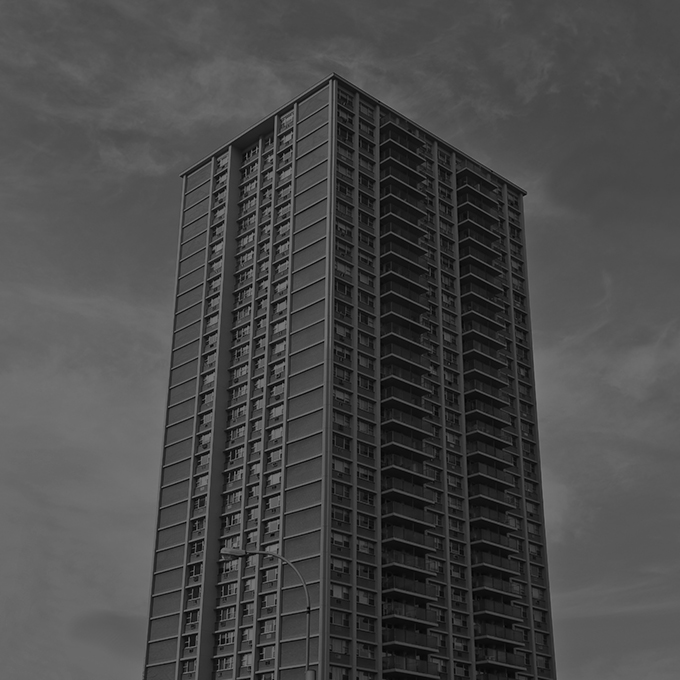BILL 184 - CHANGES TO THE RTA
Ontario Government
The Ontario Government introduced Bill 184 in early March 2020 to deal with the Covid-19 crisis. Among other things it removed the right for Landlords to evict Tenants due to non payment of rent for a given period. There were changes to other things in the RTA and to other pieces of legislation relating to housing.
Recently, the government has introduced other changes to the Bill which will change the rental landscape for both Landlords the Tenants.
“Many retailers are in trouble,” Roelof van Dijk, director of Canadian market analytics at CoStar Group Inc., a real estate research firm. “I think when we get to the other side of this, there’s a real reckoning to be had.”
Companies still need to get through July and into winter. When they do open up it won’t be easy for them to “make enough money in their restaurants or elsewhere to cover their variable costs, let alone their rent,” he said.
Canada’s federal and provincial governments crafted a plan to help companies with rent for April, May and June. The program offers forgivable loans to commercial landlords, while business tenants pay no more than 25 per cent of their usual rent.
But only firms with less than $20 million (US$14 million) in gross annual revenue can apply for the subsidy. And those who are eligible must show at least a 70 per cent drop in revenue compared with pre-virus times.
Currently, under subsection 82 (1), at a hearing of an application under section 69 that is based on a notice of termination under section 59 (non-payment of rent), the tenant may raise any issue that could be the subject of an application made by the tenant under the Act. Under section 82, as re-enacted, a tenant may do so if the tenant complies with specified requirements (including giving of advance written notice of intent to raise the issue) or provides an explanation satisfactory to the Board explaining why the requirements could not be met.
New section 135.1 deals with increases in rent that would otherwise be void as a result of a landlord’s failure to give at least 90 days’ written notice of the landlord’s intention to increase the rent. Under subsections 135.1 (1) and (2), the increase in rent is deemed not to be void if the tenant has paid the increased rent in respect of each rental period for at least 12 consecutive months, provided the tenant has not, within one year after the date the increase is first charged, made an application in which the validity of the rent increase is in issue.
New section 71.1 sets out requirements a landlord must comply with when filing an application under section 69 for an order terminating a tenancy and evicting a tenant that is based on a notice of termination given under certain sections. Under new subsection 71.1 (1), the affidavit required in respect of an application based on a notice under section 48 (Notice, landlord personally, etc., requires unit) or section 49 (Notice, purchaser personally requires unit) must be filed at the same time as the application. Under new subsection 71.1 (3), the landlord must indicate in the application whether or not the landlord has, within two years prior to filing the application, given any other notice of termination under section 48, 49 or 50 (Notice, demolition, conversion or repairs) and must, with respect to each notice, set out the specified information in the application.
Under new subsections 72 (3) and 73 (2), the Landlord and Tenant Board, in determining the good faith of the landlord or the purchaser in an application under section 69 that is based on a notice of termination given under section 48, 49 or 50, may consider any evidence the Board considers relevant that relates to the landlord’s or purchaser’s previous use of notices of termination under those sections.

CMCH AND FUTURE RE-FINANCING
CMHC
The COVID-19 pandemic has presented unique risks and concerns to our insurance underwriting relating to multi-unit residential properties, which relies on strength of borrowers, forward looking anticipation of rents and future cash flows. Prompted by a very significant acceleration in applications for refinancing, CMHC is implementing a restriction on use of funds in relation to our multi-unit mortgage loan insurance (5+ units) market refinance product. The restriction on use of funds for refinance loans focuses our activities on the supply and preservation of multi-unit residential housing in the immediate term.
Refinance proceeds must be used for a permitted purpose in relation to residential housing. This could include one or more of the following: purchase, construction, capital repairs/improvements, including for increased energy efficiency and accessibility, or securing permanent financing (take-out financing to pay off a short-term construction loan). Certain other uses may be permitted on a case-by-case basis; however, in no event shall equity take-out or distributions to shareholders be permitted, pending industry consultations.
The restriction on use of funds for market refinance loans is being implemented to address specific concerns surrounding the pandemic and the uncertainty and risks that this brings. The immediate suspension of refinancing for equity take-out was necessary to prevent front running of this policy change in the context of already increased volumes. At this time, there are no changes to CMHC’s MLI Flex product – there is already a restriction on use of funds. However, CMHC sees no policy justification for government support of borrowing to pay equity holders. Absent a significant market distortion, they expect this change to be permanent.
CONSTRUCTION ACTIVITY MARCH 2020
StatesCan
Total investment in building construction decreased 3.6% to $15.4 billion in March, with declines in both residential (-3.3% to $10.5 billion) and non-residential (-4.3% to $4.9 billion) investment. Construction in March was negatively affected by COVID-19 restrictions, especially in Quebec which shut down all non-essential building construction on March 25. National declines coincided with a drop in construction hours worked in March, as reported by Statistics Canada's Survey of Employment, Payrolls and Hours.
The overall decline in residential investment in March was driven by the multi-unit dwellings component, which fell 6.9% to $5.2 billion. Six provinces posted declines, with the largest decrease in Quebec (-23.3% to $1.1 billion).
The single-unit dwelling component of residential investment rose slightly in March, up 0.6% to $5.3 billion. Ontario led in provincial gains, up 5.8% to $2.4 billion, bouncing back from a 6.0% drop from September 2019 to February 2020. Quebec (-13.0%), New Brunswick (-5.0%) and Manitoba (-0.5%) were the only provinces to post declines in single-unit construction investment for the month.
All three components of non-residential investment decreased in March, leading to the first overall decline (-4.3% to $4.9 billion) since November 2018. Prince Edward Island was the only province to report growth in non-residential investment for the month, up 1.4% to $18.8 million. The increase was driven, in part, by the expansion of BioVectra's manufacturing facility in Charlottetown.
RECENT APARTMENT SALES
480-485 Canatara Court / 800 Castell Road – Kingston – SOLD $32,000,000 / $136,750 psf suite
This sale consists of 2 apartment buildings in a prime location in Kingston. In 480 there are a total of 164 suites in a 6 storey building constructed in the 1970's. This building caters to a high end renter having tennis courts and outdoor pool sitting on a very large site. 800 consists of 70 suites located in a low rise walk up project built in the 1960's. The property was fully marketed and exposed and the Seller was Starlight Investments and the Buyer was Skyline.
33-44 Berkley Drive / 311 Bunting Road - St. Catharines – SOLD $32,750,000 / $177,00 per suite
This sale represents a collection of three buildings located in Niagara Region. In total there are 185 rental townhouses situated on 12.61 acres of land with over 290 parking spaces. The buildings were sold by Starlight Investments to Panoramic Properties and were fully marketed and exposed. The assets were will maintained and fully occupied and were purchased as a long term hold. The Buyer owns a number of building in St. Catharines and in the Niagara Region as well.
149-170 Osgoode Street / 68 Sweetland Drive – Ottawa – SOLD $11,300,000 / $99,125 per suite
This asset comprises of 109 rooming house style suites and 5 rental apartments in Ottawa. It forms a collection of three storey walk up rental buildings dating from the 1960's. The property was not exposed and was purchased by a private investor.
57 Union Street – Waterloo – SOLD $24,490,300 / $252,475 per suite / 3.6% Cap Rate
This property is located in north Waterloo and was sold by Timbercreek Asset Management. This asset comprises of two rental apartment buildings 7 and 10 stories in heights. There are a total of 97 suites and the site is over 2.5 acres. One building was from the 1970's and the other was less than five year old. The property was fully marketed and purchased by Homestead.
THE APARTMENT GROUP
Together the team has completed over 1,000 transactions and has sold over $5 billion in apartments and development land. Put us to work for you and see the results. NO ONE has sold more buildings then our group. Experience, knowledge and professionalism will insure you get the right deal or the highest price if you are selling.
The Apartment Group is a dedicated team of professionals specializing in the sale of multi-residential investment properties. With over 40 years of combined experience, the team brings together their strengths including strong negotiation and sales skills along with highly technical market analysis and appraisal methods.
We are a boutique Brokerage but have the capabilities of the larger houses without the overhead. We have: an internal database of over 10,500 active apartment and land Buyers; a list of all apartment building owners in the Greater Toronto Area; our web site gets over 50,000 hits a month; we highlight properties for sale through our newsletter which reaches 10,000 investors monthly.
MITCHELL CHANG
President & Owner,
Salesperson
Direct: 416-907-8280
mchang@cfrealty.ca
LORENZO DIGIANFELICE, AACI
Broker of Record, Owner
Direct 416-907-8281
ldigianfelice@cfrealty.ca
JAKE RINGWALD
Salesperson
Direct 416-996-7713
jringwald@cfrealty.ca


